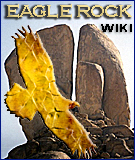Difference between revisions of "External Knowledge Training"
| Line 15: | Line 15: | ||
=== Being a British American === | === Being a British American === | ||
{{#ev:youtube|h9xzYVDWO0o|200|right| }}"Professor Freeman discusses the differences between society in the American colonies and society in Britain in the eighteenth century. She uses examples from colonists' writings to show that the American colonies differed from British society in three distinct ways: the distinctive character of the people who migrated to the colonies; the distinctive conditions of life in British America; and the nature of British colonial administration."<br clear="all" /> | {{#ev:youtube|h9xzYVDWO0o|200|right| }}"Professor Freeman discusses the differences between society in the American colonies and society in Britain in the eighteenth century. She uses examples from colonists' writings to show that the American colonies differed from British society in three distinct ways: the distinctive character of the people who migrated to the colonies; the distinctive conditions of life in British America; and the nature of British colonial administration."<br clear="all" /> | ||
| + | === "Ever at Variance and Foolishly Jealous": Intercolonial Relations === | ||
| + | {{#ev:youtube|-W4kU1YFSck|200|right| }}The early colonies can be grouped in three categories. In the North there were the New England colonies, in the center the Middle colonies and in the South the Southern colonies. Already these early colonies were very different in character.<br> | ||
| + | Freeman tells about the differences between these colonies before they finally united in the Revolution. There's some information about young George Washington who made some blunders as a young officer.<br> | ||
| + | Info on YouTube says: "Professor Freeman discusses colonial attempts to unite before the 1760s and the ways in which regional distrust and localism complicated matters. American colonists joined together in union three times before the 1760s. Two of these attempts were inspired by the necessity of self-defense; the third attempt was instigated by the British as a means of asserting British control over the colonies."<br clear="all" /> | ||
== References == | == References == | ||
Revision as of 20:30, 14 October 2012
- Most of the content of this page was first published on the FB page with the same name.
- This page is moderated by John Eagles.
Physics - Introductory Berkeley course
- Main article: Physics - Introductory Berkeley course
History - The American Revolution - Yale course
- This is an open Yale course[1]
Introduction: Freeman's Top Five Tips for Studying the Revolution
"Professor Freeman offers an introduction to the course, summarizing the readings and discussing the course's main goals. She also offers five tips for studying the Revolution: 1) Avoid thinking about the Revolution as a story about facts and dates; 2) Remember that words we take for granted today, like "democracy," had very different meanings; 3) Think of the "Founders" as real people rather than mythic historic figures; 4) Remember that the "Founders" aren't the only people who count in the Revolution; 5) Remember the importance of historical contingency: that anything could have happened during the Revolution."
Being a British colonist
How did early colonists see Britain and how did the mother country look at the colonists? Gradually the cultures diverged.
"Professor Freeman discusses what it meant to be a British colonist in America in the eighteenth century. She explains how American colonists had deep bonds of tradition and culture with Great Britain. She argues that, as British colonists with a strong sense of their British liberties, settlers in America valued their liberties above all else. She also explains that many Americans had a sense of inferiority when they compared their colonial lifestyles to the sophistication of Europe. Professor Freeman discusses the social order in America during the eighteenth century, and suggests that the lack of an entrenched aristocracy made social rank more fluid in America than in Europe. She ends the lecture by suggesting that the great importance that American colonists placed on British liberties and their link with Britain helped pave the way for the Revolution."
Being a British American
"Professor Freeman discusses the differences between society in the American colonies and society in Britain in the eighteenth century. She uses examples from colonists' writings to show that the American colonies differed from British society in three distinct ways: the distinctive character of the people who migrated to the colonies; the distinctive conditions of life in British America; and the nature of British colonial administration."
"Ever at Variance and Foolishly Jealous": Intercolonial Relations
The early colonies can be grouped in three categories. In the North there were the New England colonies, in the center the Middle colonies and in the South the Southern colonies. Already these early colonies were very different in character.
Freeman tells about the differences between these colonies before they finally united in the Revolution. There's some information about young George Washington who made some blunders as a young officer.
Info on YouTube says: "Professor Freeman discusses colonial attempts to unite before the 1760s and the ways in which regional distrust and localism complicated matters. American colonists joined together in union three times before the 1760s. Two of these attempts were inspired by the necessity of self-defense; the third attempt was instigated by the British as a means of asserting British control over the colonies."
References
- ↑ The American Revolution by Joanne Freeman is Professor of History at Yale University.
